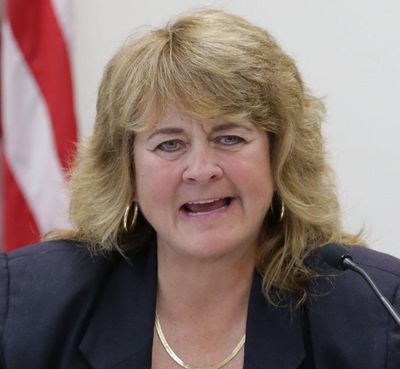Ehardt tries to pass sex ed bill for third year in a row

BOISE – Rep. Barbara Ehardt’s, R-Idaho Falls, latest proposed legislation seeks to change requirements around sexual education at schools. On Wednesday, House Education Committee voted to introduce it. It now must pass a committee hearing before being put to vote on the House floor.
This is Ehardt’s third year trying to get sex ed legislation passed. As it is written now, HB 249 is nearly identical to her 2020 bill, which did not make it out of the committee.
The bill would “codify the right of parents to opt their minor children into classes where the children will view or discuss materials related to sexuality.” Essentially, the bill would make it harder for students to receive lessons in school on the topic of sex without parent approval.
“This is about consent. Not content. This is about parental rights,” Ehardt said.
Importantly, Ehardt’s bill would add new definitions to existing code that would break education about sex into two areas: sexual education and human sexuality. Ehardt said she wrote her definitions using World Health Organization definitions.
The bill defines sexual education as “the study of the anatomy and the physiology of human reproduction.” Ehardt has left in current code language that allows parents to opt their children out of lessons about “sexual education.” This means all children will receive lessons on anatomy and reproduction unless parents fill out written forms to remove their child from those lessons.
“So if we teach Idaho statute, which is the physiology and anatomy, then we’re not going to make the teacher have to opt the children in. If they stay within what we say, then we’re good,” Ehardt said.
Education on “human sexuality,” on the other hand, is “any presentation, story time, discussion, or reading assignment” on human sexuality about anything other than anatomy and the physiology of reproduction. According to the bill, this encompasses “the topics of sex, gender identity, sexual orientation, eroticism, sexual pleasure, or sexual intimacy.”
Unlike “sexual education,” lessons on “human sexuality” would be opt-in lessons. This means no child would receive lessons on human sexuality unless a parent filled out written forms requesting their child attend those lessons. “Prior to granting permission,” parents would be given a “brief description” of what their child will be taught. If the bill passes and if desired, parents also could review material more fully ahead of the lesson.